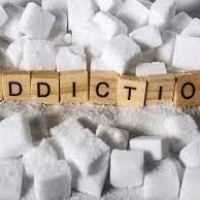
We are a product of what we eat and absorb. Food cravings and addictions are biomedical problems; one known food addiction is sugar. Sugar and learning are connected. Sugar can contribute to learning disabilities and hyperactivity and affects the educational process.
Learning requires optimal health and brain function. When a child consumes foods deficient in proper nutrients, the possibilities for learning disabilities increase; with the belief that food affects behavior, memory, and learning ability, diet and nutrition may be contributing factors and assist with the treatment of a learning disability, ADD, or ADHD.
Sugar affects a child’s ability to pay attention and can contribute to symptoms of being overactive and irritable. One of the most critical factors in treating ADD/ADHD is optimal mineral intake and absorption. One can be deficient in vital minerals essential for proper body and brain functioning.
Problem: The Sugar Content of Supplements
Children classified as learning disabled have one or more mineral deficiencies and require supplementation. A common problem with mineral supplementation is the supplements’ content of sugar. It is essential to avoid supplements containing lactate, corn derivatives, or sugar. Another common error is the heavy juvenile consumption of fruit juice and Sports drinks which are refined sugars and have little or no nutritional value.
Sugar has the potential to be a destroyer of general health and immunity as it robs the body of essential vitamins and minerals. Besides, sugar can cause a chemical addiction as severe as a drug addiction.
Many children are addicted to sugar, eating it regularly instead of important nutritious foods. Overconsumption of sugar makes children vulnerable to yeast overgrowth, leading to chronic nasal congestion, eczema, and ear infections. Yeast overgrowth is linked to sensory integration disorders, a high threshold of pain, inappropriate giggling, and mental fogginess. The yeast becomes a more significant problem when ingesting sugar or a sugar source.
Hyperactivity
A person with Candida has more gut permeability meaning the food in the gut can get from the intestines into the bloodstream undigested or partially digested. The undigested food does not belong in the bloodstream and can cause hyperactivity, especially if one cannot break down peptides. Specific peptides such as casein and gluten can cause a host of issues for learning and behavior.
Did you know that many neurotransmitters or brain chemicals exist in your brain and gut? Therefore, there is a concrete connection between your intestines and your brain.
Sugar Hinders Vitamin B Absorption
Another way sugar and learning are related is that sugar hinders the proper absorption of many B vitamins into the body and its cells. B vitamins are necessary to endorse cognitive thinking, coordination, and memory. When there is a lack of B vitamins, a child’s blood sugar can drop about 20 minutes after eating sugar, which leads to a lack of oxygen in the brain. The lack of oxygen to the brain can cause forgetfulness and affect the ability to concentrate.
In addition, B vitamins are necessary to balance and regulate one’s mood and behavior. Sugar increases adrenaline levels, which can interfere with learning and increase anxiety and irritability. So many children and even adults are walking around with overtaxed adrenal systems and find it a struggle to accomplish their daily tasks.
Role of Sugar in Daily Life
Sugar has become an American symbol of reward — sugar and learning are connected here in a circular and potentially dangerous way. Behavior modification therapy and classes reward children with candy when they complete assignments or demonstrate good behavior.
As a society, we must question the message we are teaching our youth. Research indicates warning signs to remove or decrease sugar intake from a child’s diet. Recommendations are made when children or adolescents exhibit any of the following: difficulty falling asleep or staying asleep, difficulty concentrating, obtaining low grades in school, allergies, frequent headaches, hyperactivity or listlessness, being overweight, many dental fillings, colds, or bacterial infections more than once a year. Family and parental modeling should promote healthier lifestyles and teach children to make more nutritious food choices.
The best approach is to get yourself, and your child tested to discover one’s nutritional needs and follow your customized food and supplement regime to reach your optimal health goals. Good nutrition is a family affair.
Make living healthy a priority today. Join the other members and get your questions answered. Are you a member yet? Join today http://totalwellnessempowerment.com/membership/
Want to love what you do? Become a Certified Health Coach & Holistic Health Practitioner:
THIS SITE DOES NOT PROVIDE ANY MEDICAL ADVICE.
Information on this web site is provided for informational purposes only and is not intended as a substitute for the advice provided by your physician or any information contained on or in any training course or document. You should not use the information on this web site for diagnosing or treating a health problem or disease, or prescribing any medication or other treatment. You should always speak with your physician before starting any nutritional program, exercise program or start taking any medication or nutritional, herbal or homeopathic supplement, or adopting any treatment for a health problem. For any products or services recommended from this web site, you should read carefully all product packaging and instructions. If you have or suspect that you have a medical problem, promptly contact your physician. Never disregard professional medical advice or delay in seeking professional advice because of something you have read on this web site. Information provided on this web site and the use of any products by you should be cleared by your physician.
Tags: Become a Health Coach, mental health, Nancy Guberti, sugar, sugar addiction, sugar cravings, Sugar impact kids, total wellness
Leave A Reply (No comments So Far)
No comments yet